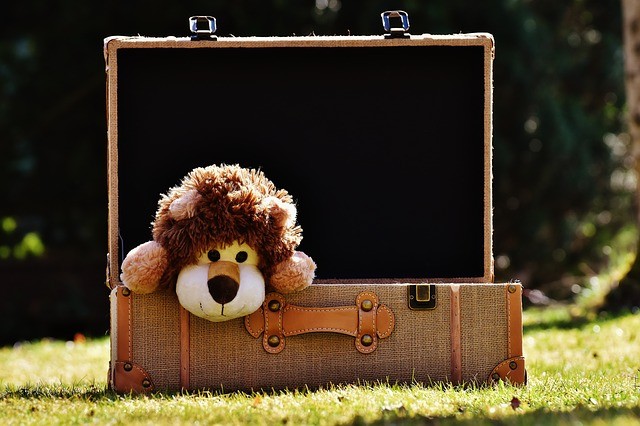Everyone knows that babies have a mind of their own when it comes to when they want to sleep! It’s a common joke that in the first year of life, a new-born baby will cause their parents more sleepless nights than they care to remember, but aside from all of that, it’s important to put into place a routine, to promote a good night’s sleep, and of course, allow you to get the same!
A new mother is often a stressed-out woman, but that can all be relieved by getting better sleep. The key to that is your baby having a better night’s sleep too. The most difficult thing is putting a baby to sleep, because some babies are simply too inquisitive, and want to be up and about, watching and soaking up new knowledge. There comes a time, however, when sleep needs to come!
So, why is routine so vital?
Every child, no matter how old, needs a routine. This breeds comfort, it helps set boundaries, and it also ensures good health. If a child has an all over the place life, they are likely to be eating at strange times, not getting enough sleep, and this all adds up to tantrums, tears, over-tiredness, and bad behaviour. For this reason, setting a routine in place as early in life as possible is so very important. Of course, this all helps you too, because you can fit in the other tasks in your life around your baby’s routine, and also get some sleep and overall rest yourself.
So, you know all about how to put your baby to sleep, but how can you actually get them to sleep?
Here are a few suggestions.
Avoid Eye Contact – At All Costs!
There is some humour in this suggestion, because everyone thinks that if a baby is about to fall asleep and you accidentally make eye contact, they will automatically think something more fun is happening and will wake right up! Whether you believe this or not, making eye contact with your baby whilst they are on the brink of falling asleep, or when you’re trying to get them to sleep is a big no-no.
This is all down to stimulation because you’re trying to calm the mind and soothe them. When you make eye contact, you’re stimulating the brain, because you might be smiling without realizing it, making a funny face, or doing something which is going to turn back the relaxation switch, and turn it back towards wake up, play time. You need your baby to relax totally for sleep to come.
Try A Warm, Soothing Bath
A warm bath before bed is enough to make heavy eyes close, even for an adult! If you bath your baby at a different time of day, try mixing up the routine and bathing them before bed, to see if it makes a difference. Try warm water, gentle music, low lighting, and create an ambiance that would make even the more alert person want to sleep!
After you have dried and dressed your baby, he or she should be almost on the brink of sleep at this point. When you fit a feed in here depends on your baby’s feeding routine, so this is something to give a little consideration to.
Soothing Movements
There is a bit of a knack to this one, but when you put your baby down in the crib to sleep, avoiding eye contact, try a few soothing movements. You do this by placing a gentle hand on their stomach, the top of their head, and their arms. The idea is that the warmth of your hand is calming, reassuring, and soothing to your baby, and brings about a total sense of relaxation and calm. Obviously, this should be enough to send them to sleep.
The warning is to avoid that eye contact we were talking about earlier, and doing that, whilst not looking, can be difficult at first!
Find The Ideal Bedtime
We’ve talked about the importance of setting a routine, but bedtime is a personal thing which needs to be tailored to you and your baby. The general advice is that for a child under 1 year of age, bedtime should be around the 6.30 to 7pm mark. If you go over this, you risk your child become overtired, and then getting them to sleep will be much harder. If you go before this, you risk them waking up very early, sending the next day into chaos, and also affecting the amount of rest you’re likely to get too.
Find the happy medium. Only you know your baby best, so experimenting with times around this mark should bring you useful information, and hopefully good results.
Check There Are No Sensitivities
Some babies have a sensitivity to certain fabrics, and that can cause problems when bedtime comes. If your baby is feeling itchy or uncomfortable, they’re not going to get to sleep easily, if at all. For that reason, try changing pyjamas and bedding to natural fabrics, rather than synthetic ones. Try cotton pyjamas, but do remember to check safety standards of any bedding, especially for fire protection.
Obviously, when it comes to food sensitivities, this is likely to show itself in other ways, but it can also present itself in your baby finding it hard to get to sleep. If you suspect this is the case, have a word with your doctor and look for alternatives in their diet.
These are all things you can try when it comes to getting your baby to sleep. Do remember that some children are simply more active than others, and it may take a little more work to get them to nod off! Try your best to avoid them becoming overtired, as this is a recipe for disaster and will take you ten times longer to achieve that satisfying sleep time!
LondonGoverness can also help!
Find out all the ways maternity nurse can help you.




